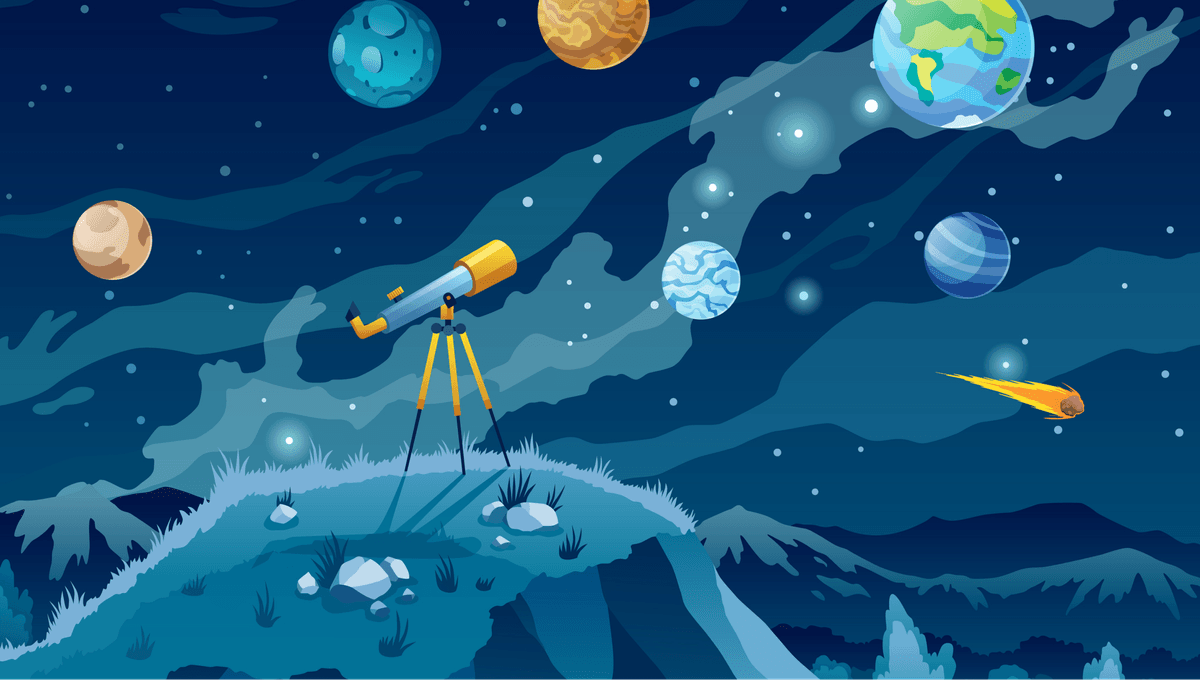
From the brain-exploding Martians of Mars Attacks! to the wonderful diversity of Men In Black’s extraterrestrial entourage, the possibility of alien life is a concept that has captured the imagination of our entire planet. Most of us only get to explore it at the movies – but for some scientists, the search for alien earths is at the core of their career.
One such scientist is Professor Lisa Kaltenegger, an astronomer who quite literally wrote the book on Alien Earths. That was why we were so excited to catch up with her at CURIOUS Live to find out what the search for life elsewhere in the universe actually entails, and how we even know what to be on the lookout for.
What drew you to the search for alien earths?
Lisa Kaltenegger (LK): One of the fun things about my research was diving into the question, what is life? The best definition we have right now is that life is an enclosed physical system. What that means is you have a membrane or a kind of cellular structure, and the key point there is that you want to be able to concentrate chemistry. Because, if you want to make something like DNA, or RNA, and you’re like this huge ocean, the water will dilute everything.
So, you want a kind of vesicle, and you want to go with Darwinian evolution – to be able to have heritage, knowledge, and to be able to reproduce, but there we are really starting to get into a slippery slope. Because there are animals that cannot reproduce, and so, would we say that that is not alive? Of course we would say it’s alive, but it’s really interesting how our best laid definition starts to break down. And then another question is, what about fire? It takes wood in like nutrition, it seems to move, it grows, but it doesn’t give information to the next tiny fire that it spawns.
What does the definition of life mean for an astronomer?
LK: For an astronomer, if there’s a tiny thing that moves on the surface of a planet, it’s not going to help me if the planet is around a different star far, far away. I need a biosphere that changes the air or the surface of the planet in a major way.
Thinking about outside, you have the green grass, the forests, that’s the colour of our world. And also, the oxygen we breathe, and then some of the methane is made by life. So what astronomers are looking for is, in a way, a little bit divorced from this fundamental idea of how could we define any life, any tiny structure that qualifies as life. Currently, we need huge signs of life to spot it over cosmic distances.
On our own planet, life does that. The biosphere changed our planet completely, several times. So, when we look at another world, there are things we can look for and spot that would tell us if anything’s breathing there too.
What are they key characteristics we look for in habitable exoplanets?
LK: The combination of oxygen with a reducing gas like methane, because oxygen plus methane makes CO2 and water in the long run. So, if you still see oxygen when there’s methane there, that means both are produced in big quantities. For methane, it could be geology, but for oxygen, we have no other explanation than life.
At a certain distance from a star, it’s too hot. Then it gets warm, and then it’s too cold. There’s just the right distance where it’s warm, and that’s what we call the habitable zone. It’s basically where, if you plop an Earth there, the water on the surface would be liquid, and it would give you oceans and rivers. But does that mean that life can only live there? Actually, it doesn’t, because if you freeze things over there could be a subsurface ocean, like we hope on the icy moons in our Solar System might have subsurface oceans that could harbor life, but we don’t know. We have to go there, drill in the ice, and check.
This article first appeared in Issue 24 of our digital magazine CURIOUS. Subscribe and never miss an issue.
Source Link: How Do You Begin Searching For Alien Life?